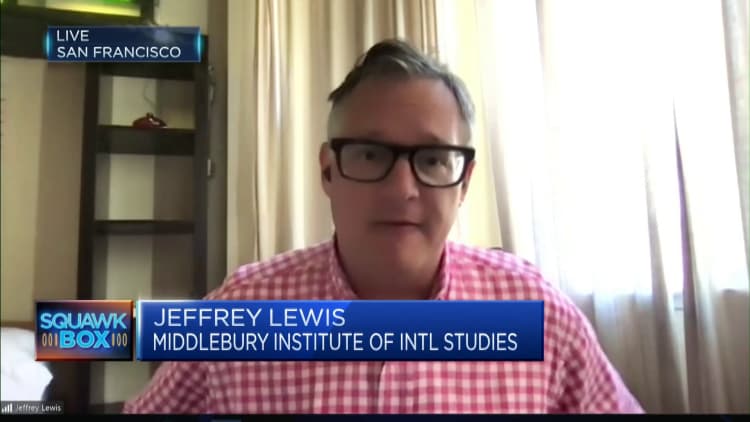
North Korea ultimately wants to have more nuclear weapons to use against the U.S. troops in South Korea and Japan in the event of an invasion, according to a professor at the Middlebury Institute of International Studies.
North Korea currently has the ability to use a small number of nuclear weapons against the United States, said Jeffrey Lewis, a professor on arms control.
"They have some deterrence, but what I think the North Koreans really, fundamentally want is the ability to use a much larger number of nuclear weapons against U.S. forces in South Korea and Japan if they thought an invasion was underway," he told CNBC's "Squawk Box Asia" on Monday.
"This is part of [an] … alarming change in the way they approach nuclear weapons, and that change is really to give themselves the ability to use nuclear weapons first if they think they are about to be invaded," he said.
His comments came after North Korea conducted another missile test on Sunday.
State news agency KCNA reported that Kim "gave important instructions on further building up the defense capabilities and nuclear combat forces of the country."
"North Koreans are really committed to shifting their nuclear policy," according to Lewis.
He said the missile looked like "yet another variant" of a short-range one and that it's "more of the same" from North Korea — but it's "still quite unwelcome."
Testing nuclear weapons?
According to Lewis, North Korea is now working toward a nuclear weapons test, more than four years since its last one in 2017.
"In a sense, the gloves are off," he said. "They don't really feel bound by any of the commitments they made in 2018 when the diplomacy period started, and we're also seeing a lot of activity at the nuclear test site."
During his presidency, U.S. President Donald Trump held two summits with Kim to discuss denuclearization on the Korean peninsula. The second one, in Hanoi, ended abruptly when the two sides were unable to agree on the removal of sanctions.
North Korea closed the entrances to its nuclear test tunnels in 2018, but they have likely already reopened them, Lewis said.
Satellite images taken in March showed construction at the site where North Korea has conducted all its previous nuclear tests, Reuters reported.
It's now up Kim to decide when he wants to test a nuclear weapon, the professor said.
"If we know one thing, we know that there's going to be a nuclear test when Kim Jong Un feels like it," he added.


